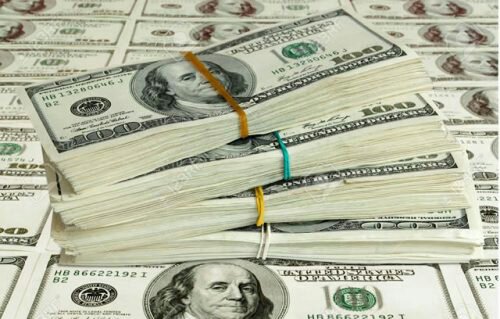News
External reserves drop by $1bn in 13 days
The nation’ s foreign exchange reserves have dropped to a seven – month low , losing $ 1 . 02 bn in the 13 days to Monday, latest data from the Central Bank of Nigeria showed on Wednesday .The external reserves , which stood at $ 44 . 30 bn on September 28 , fell from $ 44 . 02 bn on October 2 to $ 43 bn on October 15 .
The reserves , which rose to a high of $ 47 . 865 bn on May 10 , have dropped by $ 4 . 86 bn in five months .
As of March 5 , the reserves stood at $ 43 . 12 bn , up from $ 42 . 75 bn on March 2 , according to the CBN data .

Last week , the International Monetary Fund said Nigeria needed to be cautious about the use of its foreign exchange reserves , saying oil prices could decline at any time .
The IMF , in its latest Regional Economic Outlook said tighter global financial conditions resulting from faster – than -envisaged monetary policy normalisation in advanced economies , or a sudden shift in investors ’ sentiment could constrain financing and growth for many sub -Saharan African countries.
“Higher US interest rates and a stronger dollar also heighten risks , as observed historically in emerging and developing economies . In particular , the probability of a large reversal in foreign flows in sub -Saharan Africa is significantly higher the US interest rates go up , ” the fund added .
The Director, Corporate Communications , CBN, Mr Isaac Okorafor , explained early this month that the external reserves had been going down recently because of higher yields in the United States .
Okorafor , however , gave an assurance that at the current level of $ 44 bn , the reserves were sufficient to take care of the nation’ s import bill for 17 to 20 months , much more than the three – month standard recommendation .
According to him , some foreign investors who have gone to emerging markets to take advantage of the high yields have had to go back to the US because of better opportunities there at the moment .
“The drop in our forex reserves is basically as a result of the capital flow reversals arising from rising interest rates in the United States . You will recall that the Federal Reserve has been raising rates and has even given guidance that this would continue in the near term , ” he added .
-

 Biafra2 days ago
Biafra2 days ago“Simon Ekpa is not our member” – IPOB stated
-

 Celebrity Gossip & Gist2 days ago
Celebrity Gossip & Gist2 days ago“They don’t look so happy” – Reactions trail video of Chioma and Hailey at Davido’s concert
-

 Celebrity Gossip & Gist2 days ago
Celebrity Gossip & Gist2 days agoDiddy claims prosecutors showed judge edited Cassie video to make him look dangerous
-

 Celebrity Gossip & Gist2 days ago
Celebrity Gossip & Gist2 days ago“God is still in the business of doing wonders, please keep trusting God” – Emotional moment gospel singer Yinka Alaseyori serenades actress Dayo Amusa who gave birth to her first child at 41 years (Video)




